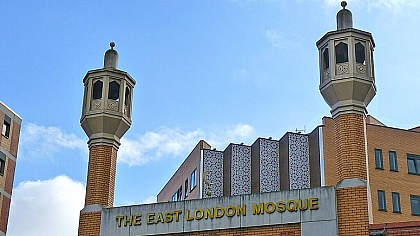
Education in London: From School Choices to Future Trends
London is a global hub of culture, business, and innovation, but it’s also a city renowned for its rich and diverse educational landscape. Home to some of the world’s most prestigious schools and universities, London offers a wide array of educational opportunities that cater to every age group and academic level. Whether you are a parent searching for the best school for your child or a student looking to pursue higher education, London’s education system is equipped to meet your needs.
The city’s education sector is marked by its variety—ranging from public schools that provide inclusive education to private institutions that offer specialized curricula. Additionally, London is a leader in educational resources, offering extensive support services, from language schools to private tutoring, making it possible for students to receive a personalized and enriched learning experience.
As the educational demands of the 21st century continue to evolve, London remains at the forefront, adapting its educational offerings to meet the needs of its diverse population. Whether through traditional classroom learning or innovative teaching methods, the city is committed to providing quality education that prepares students for a globalized world.
We will take a detailed look at the different facets of education in London, from its schooling system to the role of private tutoring and beyond. Each section will delve into the specifics of what makes London an exceptional place for education, providing valuable insights for both residents and those considering moving to the city.
London's Education System
London’s education system is one of the most complex and comprehensive in the world, designed to cater to the city’s diverse and multicultural population. The system is structured to provide a broad spectrum of educational opportunities, ensuring that every child has access to quality education, regardless of their background or academic needs. The system is divided into several key stages, each targeting different age groups and educational levels.
Primary and Secondary Education
Primary and secondary education in London is compulsory for children aged 5 to 16, with the stages divided as follows:
- Early Years Foundation Stage (EYFS): For children aged 3 to 5, this stage focuses on basic learning through play and foundational skills.
- Key Stage 1 (KS1): For children aged 5 to 7, this stage covers basic subjects like reading, writing, and mathematics, along with creative subjects such as art and physical education.
- Key Stage 2 (KS2): For children aged 7 to 11, this stage builds on the basics, introducing more complex subjects like science and history.
- Key Stage 3 (KS3): For students aged 11 to 14, this stage marks the beginning of secondary education, with a broader curriculum that includes subjects like foreign languages and more advanced sciences.
- Key Stage 4 (KS4): For students aged 14 to 16, this stage culminates in the General Certificate of Secondary Education (GCSE) exams, which are crucial for future academic or vocational paths.
Higher Education Institutions

London is home to some of the world’s leading universities and higher education institutions, attracting students from across the globe. The city offers a wide range of undergraduate and postgraduate programs, as well as opportunities for research and professional development. Some of the most notable institutions include:
- University of London: A federation of 17 self-governing colleges, including institutions like University College London (UCL) and King’s College London, which are renowned for their academic excellence.
- Imperial College London: Specializing in science, engineering, medicine, and business, Imperial College is consistently ranked among the top universities in the world.
- London School of Economics and Political Science (LSE): Known for its focus on social sciences, LSE is a global leader in subjects like economics, politics, and law.
The higher education landscape in London is characterized by its diversity, with options ranging from large research universities to smaller, specialized institutions. This diversity allows students to find programs that suit their academic interests and career aspirations.
Vocational and Further Education
Beyond traditional academic paths, London also offers extensive opportunities for vocational and further education. Institutions such as further education colleges provide courses that are more focused on practical skills and career-specific training. These include apprenticeships, diplomas, and certificates in areas like engineering, healthcare, and the arts. This aspect of the education system is crucial for students who prefer hands-on learning and are looking to enter the workforce directly after their studies.
London’s education system is designed to be inclusive and flexible, providing pathways for students of all types. Whether a student is aiming for a career in academia, business, or the trades, there is a place for them within this diverse educational ecosystem.
Private and Independent Schools
London’s private and independent schools are among the most prestigious in the world, known for their rigorous academic standards, exceptional facilities, and individualized attention to students. These schools offer a wide range of educational approaches and curricula, catering to the diverse needs and aspirations of their students. Attending a private school in London is often seen as a pathway to top universities and successful careers, attracting families from both within the UK and internationally.
Benefits of Private Education
One of the key benefits of private education in London is the low student-to-teacher ratio, which allows for more personalized instruction and tailored learning experiences. This individualized attention can be particularly beneficial for students who excel in specific subjects or require additional support in others. Private schools also tend to offer a broader curriculum, including subjects like Latin, philosophy, and additional languages, which may not be available in the public sector.
In addition to academics, private schools in London place a strong emphasis on extracurricular activities, ranging from sports and music to drama and debating. These activities are not just supplementary but are considered an integral part of the student experience, helping to develop well-rounded individuals with strong leadership and teamwork skills.
Private education also offers access to state-of-the-art facilities, including modern science labs, art studios, sports complexes, and even theatres. These resources contribute to an enriched learning environment where students can explore their interests to the fullest.
Notable Private Schools in London

London boasts several highly regarded private and independent schools, each with its unique character and strengths. Some of the most notable institutions include:
-
Eton College: Although technically outside London, in Windsor, Eton is one of the most famous schools in the UK, known for educating many British prime ministers, royalty, and public figures. Eton offers a traditional, rigorous curriculum with a strong emphasis on leadership and public service.
-
Westminster School: Located in the heart of London, Westminster is one of the oldest schools in the country, with a history dating back to the 12th century. It is known for its outstanding academic record, particularly in subjects like mathematics and sciences, and has a strong tradition of sending students to Oxford and Cambridge.
-
St Paul’s School: Another prestigious institution, St Paul’s is known for its academic excellence and has a reputation for nurturing students who go on to succeed in a variety of fields, from politics to the arts. The school offers a broad curriculum and numerous extracurricular opportunities.
-
The Harrodian School: A more modern independent school, The Harrodian offers a balanced education that emphasizes both academic achievement and creative development. It’s known for its supportive environment and strong community feel.
-
North London Collegiate School: A leading independent school for girls, North London Collegiate has a reputation for academic excellence and a focus on empowering young women to achieve their full potential. It offers a challenging curriculum alongside a wide range of extracurricular activities.
These schools, among others, often have selective admission processes, including entrance exams and interviews. The competition for places can be intense, and many families begin preparations years in advance to secure a spot for their child.
Private and independent schools in London offer an exceptional education that combines academic rigour with extensive extracurricular opportunities. They are ideal for families looking for a tailored educational experience that aligns with their child’s talents and ambitions.
Public Schools in London
Public schools in London, also known as state schools, play a crucial role in the city’s educational landscape, offering free education to the majority of students. Funded by the government, these schools are designed to be inclusive and accessible to all children, regardless of their socio-economic background. London’s public schools are known for their diversity, both in terms of the student population and the range of educational approaches they offer.
Accessibility and Quality
One of the primary advantages of public schools in London is their accessibility. Every child is entitled to a place in a state school, and the city is home to a vast network of schools spread across its boroughs, making it easy for families to find a local school. The admissions process is typically based on catchment areas, with priority given to children living closest to the school. This system ensures that education is readily available to all residents.
The quality of education in London’s public schools can vary, but many state schools are highly regarded and achieve excellent academic results. Schools are regularly inspected by Ofsted (the Office for Standards in Education, Children’s Services and Skills), which rates them on a scale from “Outstanding” to “Inadequate.” Many public schools in London receive high ratings, with a significant number achieving “Outstanding” status, indicating strong leadership, effective teaching, and positive student outcomes.
Types of Public Schools

London’s public school system is diverse, offering various types of schools to cater to different educational needs and preferences. Some of the key types include:
-
Community Schools: These are run by the local authority and follow the national curriculum. They tend to have a strong focus on inclusivity and community involvement.
-
Academies: Academies are publicly funded but operate independently of the local authority. They have more freedom to innovate in their teaching methods and curriculum, often focusing on specific specializations such as science, technology, or the arts.
-
Faith Schools: These schools are associated with a particular religion (e.g., Church of England, Catholic, Jewish, Muslim) and integrate religious education into their curriculum. However, they also teach the national curriculum and are open to students of all faiths, though admissions may give preference to those who practice the school’s faith.
-
Grammar Schools: A small number of selective grammar schools exist within the public sector. These schools admit students based on academic ability, usually assessed through the 11+ exam, and are known for their rigorous academic standards.
-
Free Schools: These are newer types of schools that are funded by the government but set up by groups such as parents, teachers, or charities. Like academies, they have more freedom in terms of their curriculum and governance.
Support for Diverse Student Populations

London’s public schools are known for their cultural and linguistic diversity, reflecting the city’s multicultural population. Many schools offer support for students who speak English as an additional language (EAL), providing specialized instruction to help them integrate and succeed academically. Additionally, schools often celebrate cultural diversity through events, festivals, and inclusive curricula that reflect the backgrounds of their students.
Public schools in London also provide support for students with Special Educational Needs (SEN). This includes tailored learning plans, access to specialist staff, and additional resources to ensure that all students can reach their full potential. SEN support is a key feature of London’s commitment to inclusive education, ensuring that no child is left behind.
Public School Extracurricular Activities and Enrichment
While public schools may not always have the extensive facilities of private schools, many still offer a wide range of extracurricular activities. These can include sports teams, music and drama clubs, art programs, and after-school clubs that cater to various interests. Participation in these activities is encouraged as they play a crucial role in personal development, helping students build confidence, leadership skills, and teamwork.
Public schools often collaborate with local organizations and charities to provide additional enrichment opportunities. This can include partnerships with museums, theatres, sports clubs, and even businesses, offering students unique experiences and insights beyond the classroom.
Public schools in London offer a robust and inclusive education that caters to a wide range of needs and preferences. While they may differ in resources and facilities, the commitment to providing quality education and supporting every child’s development remains a constant across the city’s public school system.
Specialized Education Resources
In addition to traditional primary and secondary schooling, London offers a range of specialized education resources designed to meet the varied needs of its student population. These resources play a crucial role in providing tailored support and enriching educational experiences that go beyond the standard curriculum. They include language schools, support for students with Special Educational Needs (SEN), and other specialized programs.
Language Schools and International Curricula
London’s multicultural environment means that many students speak English as an additional language. To support these students, the city has several language schools and programs designed to enhance English language skills and help students integrate more effectively into mainstream education.
-
Language Schools: These institutions offer intensive English language courses for non-native speakers, focusing on improving fluency, comprehension, and academic writing skills. Schools like London Language School and The English Studio provide targeted support for students who need to boost their English proficiency before entering mainstream education.
-
International Curricula: For families moving to London from abroad or those seeking a different educational approach, several schools offer international curricula. For example, the International Baccalaureate (IB) program is available in various schools, providing a globally recognized curriculum that emphasizes critical thinking and intercultural understanding. Schools like Duchess's International School and ACS International Schools offer IB programs alongside traditional British curricula.
-
English as an Additional Language (EAL) Support: Many mainstream schools in London offer EAL support to help non-native English speakers acclimate. This support can include additional language classes, one-on-one tutoring, and tailored learning resources designed to address the specific challenges faced by EAL students.
Special Educational Needs (SEN) Support
London is committed to providing inclusive education for students with Special Educational Needs (SEN). SEN support in London encompasses a range of services and resources designed to address diverse learning needs, ensuring that every student has the opportunity to succeed.
-
Specialist Schools: London has several specialist schools dedicated to supporting students with specific needs, such as autism, dyslexia, and physical disabilities. These schools offer tailored curriculums and specialized resources to meet the unique requirements of their students. Examples include The Bridge Academy and St. Christopher’s School.
-
Additional Support Services: In mainstream schools, SEN students receive additional support through individualized education plans (IEPs), which are designed to address their specific learning needs. This support may include access to specialist teachers, learning assistants, and tailored educational materials. Schools also often have dedicated SEN coordinators (SENCOs) who work closely with teachers, parents, and external agencies to ensure that students receive the necessary support.
-
Assistive Technology: Advances in technology have made it possible to offer various assistive tools that support students with SEN. These include text-to-speech software, interactive learning apps, and specialized communication devices, all of which help to facilitate learning and participation in the classroom.
Enrichment Programs and Specialized Activities
Beyond core academics, London offers a wealth of enrichment programs and specialized activities that cater to students' varied interests and talents. These programs are designed to provide additional learning opportunities and foster skills that may not be covered in the standard curriculum.
-
Arts and Music Programs: Many schools and organizations offer programs focused on the arts, including music, drama, and visual arts. Institutions like the Royal Academy of Arts and the London Philharmonic Orchestra provide workshops, masterclasses, and performance opportunities for students interested in the arts.
-
Science and Technology Initiatives: For students with an interest in STEM (Science, Technology, Engineering, and Mathematics), London offers numerous enrichment programs. Organizations such as the Science Museum and Code Club provide hands-on experiences and learning opportunities that complement school education.
-
Sports and Physical Education: Sports programs and physical education initiatives are prevalent across London’s schools, with many offering extracurricular sports clubs, competitive teams, and specialized coaching. Facilities like the National Sports Centre offer additional opportunities for students to engage in sports and physical activities.
Specialized education resources in London are designed to enhance the educational experience for all students, whether by improving language skills, supporting special needs, or providing enrichment opportunities. These resources ensure that students receive a well-rounded education that supports their individual needs and interests.
The Role of Private Tutoring

Private tutoring has become an integral part of the educational landscape in London, providing additional support and personalized instruction outside of the classroom. With the city’s highly competitive academic environment, many parents and students turn to private tutors to enhance learning, improve academic performance, and gain a competitive edge in school and university admissions.
Why Tutoring is Popular in London
Several factors contribute to the popularity of private tutoring in London:
-
High Academic Standards: London’s rigorous academic standards and competitive school environment drive parents to seek additional support for their children. Private tutoring can help students meet these high expectations by offering targeted assistance and focused preparation for exams.
-
Competitive Exams and Entrance Tests: For students aiming to gain entry into prestigious schools or universities, private tutoring is often seen as a valuable resource for preparing for entrance exams and interviews. Tutors provide specialized training in subjects such as mathematics, English, and science, as well as test-taking strategies.
-
Personalized Learning: One of the main advantages of private tutoring is the ability to provide personalized instruction tailored to the individual needs of the student. Tutors can address specific areas of weakness, adapt their teaching methods to suit the student’s learning style, and provide additional practice and resources.
-
Supplemental Learning: Private tutoring is not only used to address academic challenges but also to supplement classroom learning. Many students seek tutors to explore subjects in greater depth, develop advanced skills, or pursue interests outside the standard curriculum.
-
Flexible Scheduling: Tutors offer flexibility in terms of scheduling, allowing students to receive support at convenient times, whether after school, on weekends, or during school holidays. This flexibility helps students balance their academic commitments with other activities.
Subjects with a High Demand for Tutors
While private tutoring can cover a wide range of subjects, certain areas are particularly in demand in London:
-
Mathematics: Mathematics is one of the most sought-after subjects for private tutoring. Many students seek extra help to improve their understanding of complex concepts, prepare for exams, or gain a deeper insight into advanced topics. Maths tutors in London often provide support with everything from basic arithmetic to higher-level calculus and statistics.
-
English: English tutoring is popular among students who need help with reading comprehension, writing skills, and exam preparation. Tutors often work on developing language skills, essay writing, and preparation for tests like GCSE English and A-Level exams.
-
Science: Science subjects, including biology, chemistry, and physics, are commonly covered in private tutoring. Tutors help students grasp fundamental concepts, conduct experiments, and prepare for science-based exams.
-
11+ and Entrance Exams: Private tutoring can provide targeted practice and test-taking strategies for younger students preparing for selective school entrance exams, including the 11+. Tutors focus on areas such as verbal and non-verbal reasoning, mathematics, and English.
-
Foreign Languages: With London’s diverse population, many students seek tutoring in foreign languages to improve their fluency, prepare for language exams, or maintain proficiency. Tutors offer support in languages such as French, Spanish, Mandarin, and more.
Finding the Right Tutor
Choosing the right tutor is crucial for maximizing the benefits of private tutoring. Here are some factors to consider when selecting a tutor:
-
Qualifications and Experience: Look for tutors who have relevant qualifications and experience in the subject they are teaching. Many tutors are experienced educators or subject matter experts with a track record of success.
-
Teaching Style: Ensure that the tutor’s teaching style matches the student’s learning preferences. Some students may benefit from a structured approach, while others may thrive with a more flexible and interactive method.
-
Reputation and References: Seek recommendations from other parents or check online reviews to gauge the tutor’s reputation. Personal references and positive feedback can provide insight into the tutor’s effectiveness and reliability.
-
Compatibility: The relationship between the tutor and student is important for successful learning. Look for a tutor who can build rapport with the students and motivate them to engage with the material.
-
Cost and Availability: Consider the cost of tutoring sessions and ensure that it fits within your budget. Additionally, check the tutor’s availability to ensure that their schedule aligns with the student’s needs.
Private tutoring in London offers valuable support for students seeking to enhance their academic performance, prepare for exams, and achieve their educational goals. With the right tutor, students can gain confidence, improve their skills, and excel in their studies.
Extracurricular Activities and Enrichment Programs
Extracurricular activities and enrichment programs play a vital role in a student’s development, complementing academic learning with opportunities for personal growth, skill development, and social interaction. In London, a city known for its vibrant cultural and educational environment, students have access to a wide range of activities beyond the standard curriculum. These activities help foster creativity, teamwork, and leadership skills, contributing to a well-rounded education.
Importance of Extracurriculars in London Schools
Extracurricular activities are essential for several reasons:
-
Holistic Development: Engaging in activities outside of academics helps students develop a range of skills, including creativity, problem-solving, and interpersonal skills. These experiences contribute to a student’s overall growth and prepare them for future challenges.
-
Enhanced Learning: Many extracurricular activities provide practical applications of academic concepts. For example, students involved in science clubs may conduct experiments and engage in projects that enhance their understanding of scientific principles.
-
Social Skills and Teamwork: Activities such as sports, drama, and group projects require collaboration and communication. These experiences help students build strong social skills, learn to work as part of a team and develop leadership abilities.
-
Stress Relief and Wellbeing: Extracurricular activities provide a constructive outlet for stress and help balance academic pressures. Engaging in hobbies and interests outside of school can improve mental health and overall well-being.
-
University and Career Preparation: Participation in extracurriculars can enhance a student’s university and job applications. Many universities and employers look for well-rounded candidates with diverse experiences and demonstrated commitment to activities outside of academics.
Popular Programs and Activities in London
London offers a plethora of extracurricular programs and activities across various fields. Here are some popular options:
-
Sports and Physical Activities: London is home to numerous sports clubs and facilities catering to a range of interests, from traditional sports like football, basketball, and swimming to niche activities such as fencing, archery, and rock climbing. Schools often have their own sports teams and offer extracurricular sports programs, while local clubs and organizations provide additional opportunities for competition and training.
-
Arts and Creative Pursuits: For students interested in the arts, London offers a rich array of programs in music, drama, and visual arts. Many schools have their own arts programs, but students can also participate in external activities such as theatre workshops, music lessons, and art classes. Organizations like The Royal Academy of Arts and The National Theatre provide opportunities for students to engage with professional artists and productions.
-
Academic Enrichment: Enrichment programs that extend academic learning are widely available in London. These include coding clubs, science and engineering workshops, debate teams, and math circles. Programs like The Brilliant Club and The Gifted and Talented Program offer advanced learning opportunities for students with particular academic interests.
-
Community Service and Volunteering: Volunteering and community service are valuable extracurricular activities that help students develop empathy and a sense of social responsibility. London has numerous opportunities for volunteering, from local charities and community organizations to global initiatives. Programs like Young Volunteers and London Youth offer structured volunteering experiences.
-
Leadership and Personal Development: Leadership programs and personal development workshops help students build confidence and develop essential life skills. Organizations like The Duke of Edinburgh’s Award and Youth Leadership London offer structured programs that encourage students to set goals, take on challenges, and lead initiatives.
-
Cultural and International Experiences: London’s cultural diversity provides opportunities for students to engage with different cultures and international perspectives. Programs and events such as cultural festivals, language clubs, and international exchange programs enrich students’ understanding of the world and promote intercultural communication.
Parental Involvement in Education

Parental involvement is a critical component of a child’s educational success. Active engagement from parents can significantly enhance a student’s learning experience, academic performance, and overall development. In London, where educational standards are high and competition can be intense, parental support can make a crucial difference in a student’s journey through school.
The Importance of Parental Engagement
Parental involvement in education has been shown to have a range of positive impacts on students:
-
Academic Achievement: Students whose parents are actively involved in their education tend to perform better academically. Parental support can help reinforce learning, improve motivation, and increase the likelihood of achieving higher grades.
-
Enhanced Learning Environment: When parents engage with their child’s education, they help create a supportive learning environment at home. This can include providing a quiet place for study, encouraging reading and learning, and monitoring homework and assignments.
-
Positive Attitudes Towards School: Parental involvement fosters a positive attitude towards school and learning. Students are more likely to develop a love for learning and feel a sense of responsibility when they see their parents taking an active interest in their education.
-
Improved Behaviour and Attendance: Students with involved parents often exhibit better behaviour and higher attendance rates. Parental engagement can help address issues early on and provide the support needed to overcome challenges.
-
Stronger School-Parent Relationships: Active involvement in school activities and communication with teachers strengthens the relationship between parents and educators, leading to a more collaborative approach to supporting the student.
Future Trends in Education in London

The educational landscape in London is continually evolving, driven by technological advancements, changing societal needs, and new pedagogical approaches. Understanding future trends can help students, parents, and educators prepare for and adapt to the dynamic world of education. Here’s a look at some key trends shaping the future of education in London.
Technological Integration
1. Digital Learning Tools: Technology is increasingly integrated into the classroom, enhancing both teaching and learning experiences. Digital platforms such as Google Classroom, Microsoft Teams, and various educational apps are becoming standard tools for collaboration, assignment submission, and feedback. Virtual and augmented reality (VR and AR) are also being used to create immersive learning experiences, allowing students to explore historical events, scientific concepts, and more in an interactive way.
2. Personalized Learning: Advances in data analytics and AI are paving the way for personalized learning experiences. Adaptive learning technologies use algorithms to tailor educational content to individual students’ needs, preferences, and pace. Platforms like Khan Academy and Socrative offer personalized practice and feedback, helping students focus on areas where they need the most improvement.
3. Blended Learning Models: Blended learning combines traditional face-to-face instruction with online components. This approach allows students to benefit from in-person interactions and flexibility in using online resources. Schools in London are increasingly adopting blended learning models to provide a more flexible and individualized educational experience.
Focus on Wellbeing and Mental Health
1. Holistic Education: There is a growing emphasis on holistic education that addresses not just academic achievement but also the emotional and psychological well-being of students. Schools are incorporating wellbeing programs that include mindfulness practices, stress management workshops, and mental health education.
2. Mental Health Support Services: Schools are expanding their mental health support services to provide better assistance to students facing emotional and psychological challenges. This includes on-site counsellors, mental health awareness campaigns, and partnerships with external mental health organizations.
3. Wellbeing Initiatives: Initiatives such as Mindfulness in Schools Project and Young Minds are helping schools integrate well-being practices into their curriculum and daily routines. These programs aim to build resilience, improve self-esteem, and promote a positive school environment.
Emphasis on Life Skills and Career Readiness
1. Skills for the Future: There is a growing recognition of the importance of life skills and career readiness alongside academic achievements. Schools are incorporating curricula that focus on skills such as critical thinking, problem-solving, communication, and financial literacy. Programs like Career Ready offer students real-world experiences and connections to potential career paths.
2. Work Experience and Internships: Schools are increasingly offering opportunities for work experience and internships as part of the educational program. These experiences provide students with valuable insights into various professions, helping them make informed decisions about their future careers.
3. Entrepreneurial Education: Entrepreneurship education is gaining traction, with schools offering programs that encourage innovation, creativity, and business acumen. Initiatives like Enterprise UK and The Prince’s Trust support students in developing entrepreneurial skills and launching their projects.
Inclusivity and Diversity

1. Inclusive Education Practices: There is a strong focus on creating inclusive learning environments that accommodate students from diverse backgrounds and with different needs. This includes implementing practices that support students with Special Educational Needs (SEN), as well as fostering an environment that respects and celebrates cultural diversity.
2. Equity in Education: Addressing educational inequalities is a priority, with efforts to ensure that all students, regardless of their socio-economic background, have access to high-quality education and resources. Programs and policies are being developed to support disadvantaged students and promote equal opportunities.
3. Cultural Competency: Schools are increasingly emphasizing the importance of cultural competency, teaching students to understand, respect, and engage with diverse cultures. This includes incorporating diverse perspectives into the curriculum and providing opportunities for students to learn about and engage with different cultures.
Innovations in Curriculum and Assessment
1. Competency-Based Education: Competency-based education focuses on students demonstrating their understanding and mastery of specific skills and knowledge, rather than simply progressing based on time spent in class. This approach allows for more flexible learning paths and personalized assessments.
2. Project-Based Learning: Project-based learning (PBL) encourages students to engage in real-world projects that require critical thinking, collaboration, and problem-solving. Schools are adopting PBL to make learning more relevant and engaging, while also helping students develop practical skills.
3. Digital Assessment Tools: Digital assessment tools are becoming more prevalent, offering innovative ways to evaluate student progress. Tools like Formative and Quizlet provide interactive assessments and instant feedback, helping both teachers and students track learning outcomes more effectively.
Environmental and Sustainability Education

1. Green Schools: There is a growing emphasis on sustainability and environmental education. Schools are incorporating green practices into their operations and curricula, such as reducing waste, conserving energy, and promoting environmental stewardship. Programs like Eco-Schools support schools in becoming more environmentally friendly.
2. Outdoor Learning: Outdoor learning and nature-based education are gaining popularity, with schools incorporating outdoor classrooms and environmental studies into their programs. This approach helps students connect with nature and develop an appreciation for the environment.
A focus on technological integration, well-being, life skills, inclusivity, and innovation marks the future of education in London. These trends are shaping how students learn and prepare for their futures, creating a more dynamic and responsive educational landscape.











